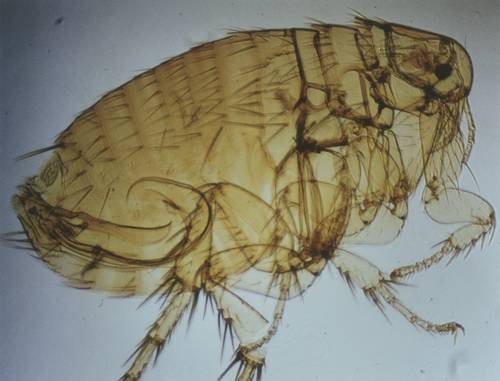Flea-borne -Spotted-Fever (FBSF) in Humans.
Why it is never a good idea for owners to tolerate fleas on any of your pets.
Australians are pretty on the ball when it comes to knowing the health risks of a tick getting on their pet or on themselves. No client has an issue when we find a tick, all are grateful that both the health of their pet and their health is the better for the finding and elimination of said tick.
Fleas however, are a different matter. Some clients take it personally when we find fleas on their pets and will lash out, calling vets names and accusing the vet of being the source of the fleas….This despite the fact the dog has only been in the clinic minutes and some of the life-style stages we are finding on the pet needed a minimum of 4-8 hours to appear. Instead of just accepting that the flea has been found and their pet will no longer be miserable itching and scratching, a small cohort of owners refuse to accept the finding. What seems to have been always overlooked is the negative health aspect of fleas on humans as well as their pets.
We all know that the bubonic plaque wiped out almost half the human population of Europe in the 1300s- Infected fleas carried by rats was the cause. We know fleas carry tapeworm risks and allergic issues for our pets. However, many Australians are completely unaware that Flea-borne Spotted Fever (FBSF) is a rising public health concern in Australia and being in denial about your pet’s fleas is not going to help anyone…
I decided to share an article from last year by Dr Rebecca Traub, Associate Professor in Veterinary Parasitology at the University of Melbourne who updated the AVA on the issue:
Flea-borne spotted fever (FBSF) is a rising public health concern in Australia, according to Dr Rebecca Traub, Associate Professor in Veterinary Parasitology at the University of Melbourne.
Dr Traub spoke at the Australian Veterinary Association (AVA) Annual Conference last year about the rise of FBSF in Australia in recent years and what Australian owners should do to protect their families from the disease.
“FBSF is transferred to humans through flea bites. In humans, signs of FBSF are non-specific and range from flu-like illness to severe multi-systemic disease.
“It was once considered rare but in 2009 the first outbreak of FBSF occurred in a family in Melbourne. Since then, retrospective testing with an improved diagnostic assay confirmed that an additional 14 clinical cases were previously misdiagnosed.
“Recent research now implicates dogs as the natural mammalian hosts for the causative agent, Rickettsia felis in Australia. Fleas that feed on infected dogs can remain carriers of the agent for many generations and can pass FBSF on to humans. So, if we want to prevent the spread of this disease, it’s critical that pet owners use effective flea treatment and control in their pets,” Dr Traub said.
There is strong evidence to suggest that FBSF has been misdiagnosed in Australia in the past because of the vague signs, which can mimic other flea- and tick- borne diseases. Dr Traub says that this suggests doctors should include relevant patient history such as exposure to domestic pets with fleas when a typical ‘spotted fever disease’ is suspected.
“FBSF is an emerging disease that’s transferred from animals to humans and as veterinarians it’s vital that we work with our clients to ensure they understand the importance of flea control in pets. This is the only way to minimise the risk of exposure in everyone from veterinarians to clients and their families,” Dr Traub said.
The take home message: Use effective Flea control.
Despite the social media angst over products like Bravecto etc-these products work in all pets and after 7 million doses are deemed safe in 99% of pets. There will always be an individual pet who will have an issue or reaction to any flea product-it is no different to humans who react to antibiotics. peanut butter, bee stings etc. For that individual the adverse response is huge and distressing; but we don’t stop other people using antibiotics or peanut butter or kill all the bees because of an individual’s bad reaction. By using good flea control in pets who can tolerate it, then we allow the pet with drug sensitivities to avoid being exposed to these products because there the risk from fleas etc has been dealt with and reduced by the protected animals around the allergic pet.
Not doing anything exposes everyone and every animal to adverse health effects from exposure to fleas and ticks.
